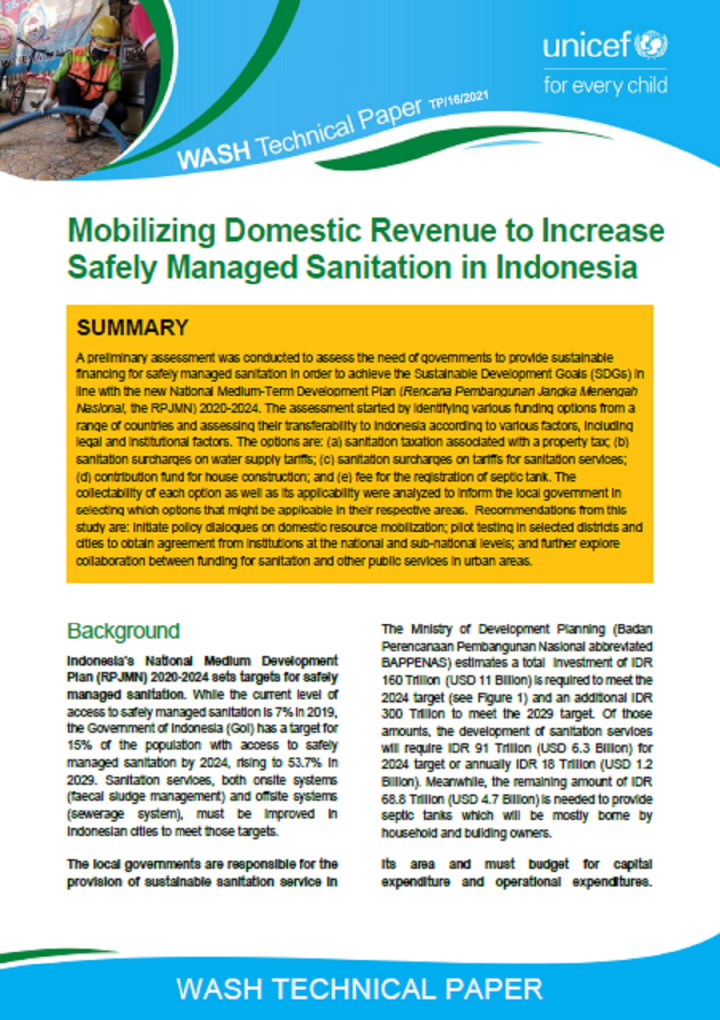Mobilizing Domestic Revenue to Increase Safely Managed Sanitation in Indonesia M. Listyasari (UNICEF Idonesia) (2022)
A preliminary assessment was conducted to assess the need of governments to provide sustainable financing for safely managed sanitation in order to achieve the Sustainable Development Goals (SDGs) in line with the new National Medium-Term Development Plan (Rencana Pembangunan Jangka Menengah Nasional, the RPJMN) 2020-2024. The assessment started by identifying various funding options from a range of countries and assessing their transferability to Indonesia according to various factors, including legal and institutional factors. The options are: (a) sanitation taxation associated with a property tax; (b) sanitation surcharges on water supply tariffs; (c) sanitation surcharges on tariffs for sanitation services; (d) contribution fund for house construction; and (e) fee for the registration of septic tank. The collectability of each option as well as its applicability were analyzed to inform the local government in selecting which options that might be applicable in their respective areas. Recommendations from this study are: initiate policy dialogues on domestic resource mobilization; pilot testing in selected districts and cities to obtain agreement from institutions at the national and sub-national levels; and further explore collaboration between funding for sanitation and other public services in urban areas.
Bibliographic information
M. Listyasari (UNICEF Idonesia) (2022). Mobilizing Domestic Revenue to Increase Safely Managed Sanitation in Indonesia UNICEF
Filter / Tags
English
Downloads
Mobilizing Domestic Revenue to Increase Safely Managed Sanitation in Indonesia
Type: application/pdf
Size: 0.57 MB

